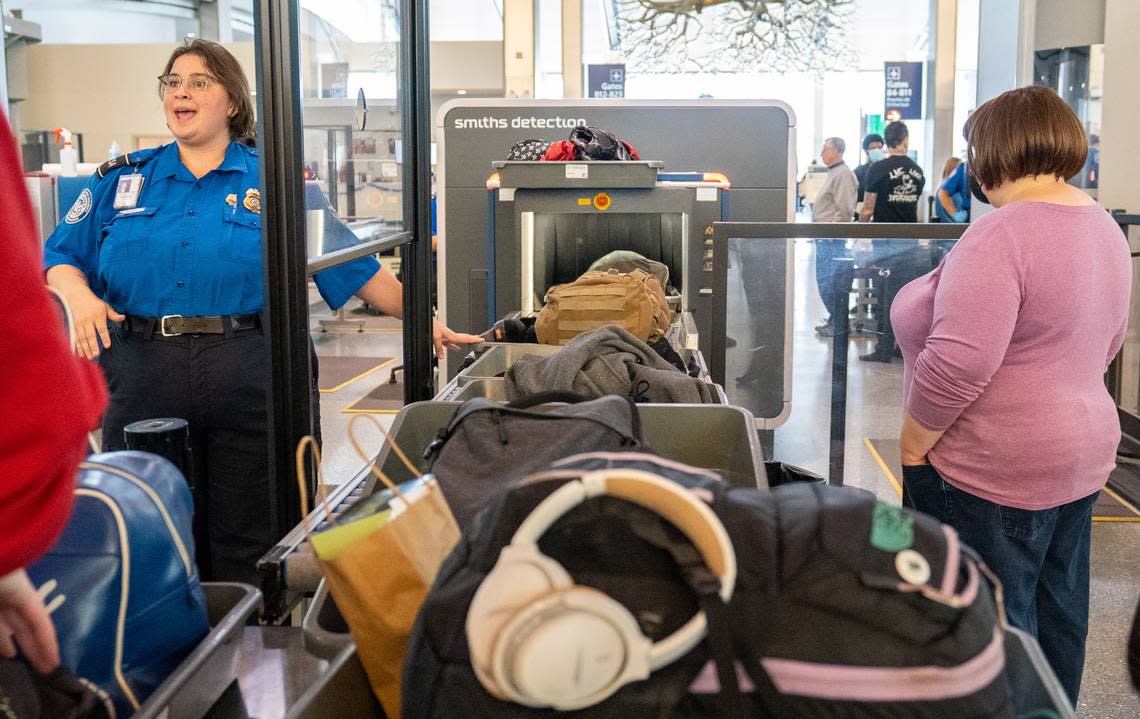Will a government shutdown cause airport delays? What to know as funding deadline looms

Essential employees at airports across the United States would be required to show up to work without pay if the government shuts down Sunday.
What does that mean for your travel plans?
What’s happening?
If Congress does not reach a spending deal by midnight on Saturday, the government would shut down. More than 13,000 air traffic controllers and 50,000 Transportation Security Administration officers would have to show up to work — but they wouldn’t get paid until the shutdown ends, according to a news release from the White House.
In California, that includes 5,469 TSA officers and 1,418 air traffic controllers.
“We don’t anticipate any impacts to airports operations since most roles are considered essential,” said Sacramento International Airport spokesman Scott Johnston in an email to The Bee. “We hope for a speedy resolution to ensure continuation of the full services the US government provides to the aviation industry.”
Also worth noting: about 65% attendees of the Aftershock 2023 music festival in Sacramento, which runs from Oct. 5-8, are expected to come in from out of town, said Visit Sacramento President Mike Testa.
TSA screens 2.5 million passengers each day, according to the Department of Homeland Security.
More than 185,000 people, or 72% of the DHS workforce, would be required to work without pay. That includes over 19,000 border patrol agents and 25,000 office of field operations officers who would go unpaid.
The Federal Aviation Administration, also facing a congressional authorization deadline, would furlough more than 17,000 workers. About 25,000 in essential safety positions would have to work without pay, The Washington Post reported.
Past shutdowns caused delays for travelers across the country.
When TSA officers had to work without pay during the 35-day partial government shutdown in 2018 and 2019, the agency dealt with an increase in unscheduled absences, The New York Times reported. At some airports, that led to longer wait times at security checkpoints.
During one of those days, TSA reported 10% of officers were out for an unscheduled absence, NerdWallet reported.
Staffing shortages at two air traffic control facilities caused flight delays in the Northeast, the Times reported.
A shutdown could also delay the deployment of advanced security technology to airports.
Plus, a shutdown could disrupt the industry further by shutting down training for those air traffic controllers — a role that’s already experiencing a shortage.
What’s the cost on the economy?
The U.S. Travel Association estimates the shutdown would cost the country’s travel economy $140 million a day, what president and CEO Geoff Freeman called, “an unacceptable prospect that Congress must avoid before the clock runs out and the damages mount.”
A survey from U.S. Travel and Ipsos (a market research company) found six in 10 Americans would cancel or avoid traveling by plane.
“This completely avoidable situation threatens livelihoods and jobs across the U.S. economy,” Freeman said in a news release. “Ultimately, travelers, businesses and workers will pay the price if lawmakers fail to enact a stop-gap funding bill.”
What should you do to prepare for air travel?
If you’re planning to travel soon, here are a few things you should keep in mind.
Fly earlier in the day. “Statistically your flight is less likely to get canceled the earlier in the day you fly,” Kathleen Bangs, a former commercial airline pilot and current spokesperson for FlightAware, told Forbes.
Monitor your plane ahead of time. You can check if your plane is on schedule through FlightAware’s “Where is my plane now?” tool.
Download the app for your airline. You might be able to rebook a new flight faster on your phone than at the airline’s customer service counter, Forbes reported.
While airlines owe you compensation if delays or cancellations happen in their control, that may not be the case during a shutdown.
Look for alternatives to air travel such as delaying your travel or renting a car.
What is The Sum?
The Sum is your friendly guide to personal finance and economic news.
We’re a team of McClatchy journalists cutting through the financial jargon so you know how these issues impact your life. We verify information from diverse sources and keep the facts front-and-center, making finance and economic news add up for you.
Ready to take the first step to getting your finances under control? You can sign up for our five-week budgeting newsletter at thesum.news.
The Bee’s Jacqueline Pinedo and Chris Biderman contributed to this story.

